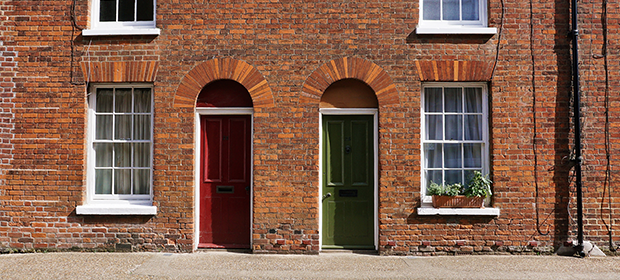From April 2020, when selling a UK property that is not your main residence you’ll need to pay capital gains tax within 30 days of the completion date. This is a major change from the current system, which allows for capital gains tax to be reported and paid with the next Self Assessment return (which can be up to 22 months after the date of sale).

So anyone selling a second residential property within the UK – including anyone selling an inherited property – needs to be aware of the new HMRC guidelines.
What is changing and who does it affect?
Essentially, HMRC are looking to collect tax from the disposal of private residences much more quickly. They’re separating capital gains tax from the Self Assessment process to make it a standalone payment, and they’re drastically shortening the payment window:
“The general rule will be that a return in respect of the disposal must be delivered to HMRC within a ‘payment window’ of 30 days following the completion of the disposal, and a payment on account made at the same time. The self-assessed calculation of the amount payable on account takes into consideration unused losses and the person’s annual exempt amount. The rate of tax for individuals is determined after making a reasonable estimate of the amount of taxable income for the year.
“Gains on disposals reported on the new return can be ignored when determining whether to register for self-assessment. Enquiries into the return will be able to be made separately from any self-assessment return that may be due.”
So from April 2020 you’ll need to calculate, file and pay capital gains tax within 30 days of completion when you sell a property that is not your main residence.
This applies to buy-to-letters and those with large property portfolios as well as those deemed as ‘accidental second property owners’ such as those who have inherited a property and want to sell it.
Selling an inherited property can be a complex and lengthy process. You’ll often be working with an estate agent and a solicitor, but neither are in a position to advise you on your CGT liability. So they’re likely to recommend that you work with an accountant to work out how much capital gains tax you need to pay and to ensure it gets filed correctly.
Where to find out more
We’d recommend getting in touch with a professional when selling a second residential property for help calculating and filing your capital gains tax within the 30-day window. In the meantime, further information from HMRC can be found here.
However, be aware that HMRC have been criticised for the way in which the new 30-day window has been communicated. Many have been left confused by the lengthy guidance and complex terminology, unable to find the answer to their ultimate question; “How much capital gains tax would I pay on a property that is not my main residence?”.
So ultimately our advice is to seek professional help from an experienced landlord accountant such as Warr & Co.

 © 2019 Warr & Co Chartered Accountants. Warr & Co Chartered Accountants is a member of The Institute of Chartered Accountants in England & Wales (ICAEW). Whilst the information detailed here is updated regularly to ensure it remains factually correct, it does not in any way constitute specific advice and no responsibility shall be accepted for any actions taken directly as a consequence of reading it. If you would like to discuss any of the points raised and / or engage our services in providing advice specific to your personal circumstances, please feel free to contact any one of the partners on 0161 477 6789 or contact us via our website forms. Warr & Co Chartered Accountants are registered to carry our audit work in the UK, our audit registration number is C002961684, for more information please visit www.auditregister.org.uk.
© 2019 Warr & Co Chartered Accountants. Warr & Co Chartered Accountants is a member of The Institute of Chartered Accountants in England & Wales (ICAEW). Whilst the information detailed here is updated regularly to ensure it remains factually correct, it does not in any way constitute specific advice and no responsibility shall be accepted for any actions taken directly as a consequence of reading it. If you would like to discuss any of the points raised and / or engage our services in providing advice specific to your personal circumstances, please feel free to contact any one of the partners on 0161 477 6789 or contact us via our website forms. Warr & Co Chartered Accountants are registered to carry our audit work in the UK, our audit registration number is C002961684, for more information please visit www.auditregister.org.uk.